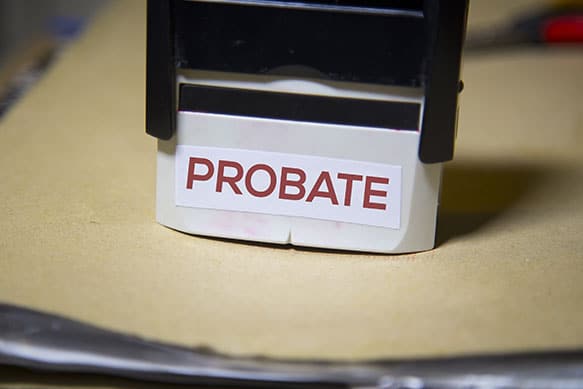ARIZONA PROBATE ATTORNEY
AFFORDABLE ESTATE PLANNING LEGAL SERVICES With My AZ Lawyers

PROBATE
What is Probate?
When someone passes away, their estate is administered through a process known as probate. The will needs to be validated, the decedent’s estate inventoried, beneficiaries, identified, and more. Some interested parties may dispute the will or bring other challenges, which can extend the process and create the need for probate attorney representation. While probate can be long and expensive, it prevents fraud in the distribution of a person’s estate plan after their death.
Is Probate Always Necessary in Arizona?
In Arizona, some small estates may be able to bypass the probate process. A small estate beneficiary can do this by presenting a small estate affidavit, along with the death certificate, to whoever is holding the estate. For personal property, which is anything besides real estate, there can be no more than $75,000 in the estate to use a small estate affidavit. You must wait at least 30 days after the decedent’s death to file a personal property small estate affidavit. A small estate can only have up to $100,000 of real property, or real estate, and you must wait at least six months after the decedent’s death to use the affidavit. This is to ensure that all funeral expenses, unsecured debts, and estate taxes have been paid. There is also a requirement that a court-appointed estate representative can’t have been active for at least a year and not have filed a closing statement with the court.
-
Joint Tenancy Property: Bank accounts, homes, and other assets held in joint tenancy simply pass to sole ownership of the other joint owner when one passes away.
-
Trust Assets: Assets held in living trusts transfer to the beneficiary upon the grantor’s death.
-
Payable-on-death accounts: As the name suggests, these bank accounts transfer to the beneficiary when the decedent passes away.
-
Real estate with a transfer-on-death-deed: Arizona is one of the states that allows a person to designate their property as transfer on death and list one or more beneficiaries. You can use a similar form for vehicles and certain other assets.
-
Beneficiary designations and contracts: If you list a beneficiary on retirement accounts and other similar accounts, they will transfer to the beneficiary without probate. The same can be said for life insurance policies.
ARIZONA PROBATE LAWYER
High-Quality Legal Representation for Arizona Probate Matters
Being involved in an Arizona probate case is stressful. Not only have you just lost a loved one, but now you must also deal with legal paperwork and court proceedings, and possibly even disputes from other interested parties. You have the option of representing yourself, but it can be far less stressful for you if you hire an experienced Arizona probate lawyer. Additionally, it can also make the process faster, and an overall less painful experience.
Whether you’re looking to plan your estate, or you need an experienced probate attorney to assist with your case, My AZ Lawyers has the legal team to meet your needs. Our Arizona probate attorneys can guide you through the probate process, and at reasonable rates. Call today to discuss your situation with one of our probate attorneys- your initial consultation is free.

Are there different types of Probate in Arizona?
In Arizona, there are three main types of probate proceedings.
-Formal Probate: This is used when there are legal issues in administering the estate. For example, someone could challenge the will’s validity, or the will’s wording could be open to multiple interpretations.
-Informal Probate: When a will is valid and unchallenged, the executor can move through the estate through probate with minimal court intervention.
-Supervised Probate: Any interested party can request that every step of the probate process occurs with court supervision. In supervised probate, the personal representative must get the court’s approval before proceeding with any of the probate steps.
How Long Does the Probate Process Last in Arizona?
There is no standard amount of time that it takes to complete the probate process in Arizona. You can usually expect the process to take at least six months. For more complex estates, supervised probate cases, or when there are multiple disputes, the process could take up to a year or more.








